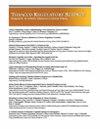Decision onRegional Logistics Network Based on H-S and P-P Network: Taking Tobacco Transportation Logistics as anExample
4区 医学
引用次数: 0
Abstract
Objectives: The logistics hub construction has always been the short board of logistics network planning in China. In order to improve the decision-making efficiency of logistics enterprise’s hub selection and reduce its comprehensive operation cost, this paper establishes a cost difference model for hub-and-spoke(H-S) and point-to-point(P-P) networks considering the fixed cost of hubs, transportation and route costs based on the 0-1 integer nonlinear programming. The model aims at minimizing the cost difference between the two networks, and divides the fixed cost of the hubs into three situations: full lease, lease and self-built, and fully self-built. Finally, this paper takes tobacco transportation logistics as an example, and use particle swarm algorithm to solve the model by using tobacco transportation logistics data of a logistics enterprise in Jiangsu Province. The results show that: (i) in the case of complete leasing, the total cost of the H-S network decreases with the increase of the number of hubs, and the cost change has a point of intersection with the total cost of the P-P network;(ii) when the lease and self-build are mixed, the increase is first reduced and then increased, it is U-shaped and has a minimum value, and there are two intersections with the total cost of the P-P network;(iii) the situation of completely self-built and fully leased is just the opposite. This paper takes tobacco transportation logistics as a representative, and provides a reference for logistics companies to choose the appropriate regional logistics network structure and different pivot points.基于H-S和P-P网络的区域物流网络决策——以烟草运输物流为例
目的:物流枢纽建设一直是中国物流网络规划的短板。为了提高物流企业枢纽选择的决策效率,降低物流企业的综合运营成本,本文基于0-1整数非线性规划,在考虑枢纽固定成本、运输成本和路线成本的情况下,建立了hub-and-spoke(H-S)和point-to-point(P-P)网络的成本差异模型。该模型以最小化两种网络之间的成本差异为目标,将集线器的固定成本分为全租赁、租赁自建和全自建三种情况。最后,本文以烟草运输物流为例,利用江苏省某物流企业烟草运输物流数据,采用粒子群算法对模型进行求解。结果表明:(我)在完成租赁、H-S网络的总成本降低与中心的数量的增加,成本变化与总成本的交点p p网络;(2)租赁和自助建站混合时,是先降低,然后增加,增加u型和有一个最小值,有两个交叉口的总成本p p网络;(3)完全自建和完全租赁的情况恰恰相反。本文以烟草运输物流为代表,为物流企业选择合适的区域物流网络结构和不同的支点提供参考。
本文章由计算机程序翻译,如有差异,请以英文原文为准。
求助全文
约1分钟内获得全文
求助全文

 求助内容:
求助内容: 应助结果提醒方式:
应助结果提醒方式:


